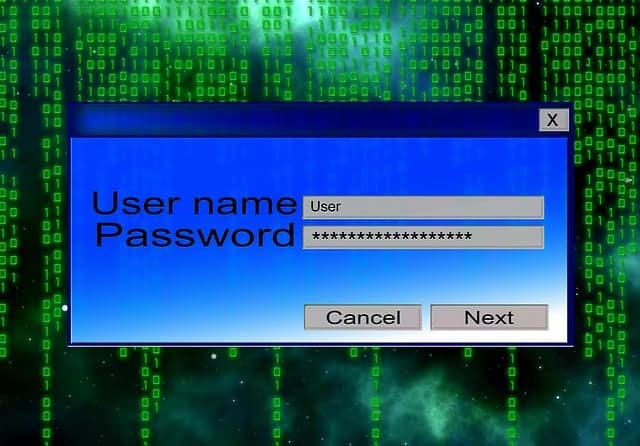In the rapidly evolving world of online education, the protection of student privacy has emerged as a critical concern. With the widespread use of digital platforms and tools, students’ personal information is increasingly vulnerable to unauthorized access and misuse. This article delves into the privacy risks associated with online education and highlights the significance of complying with student data privacy laws.
By shedding light on these risks and emphasizing the responsibilities of educators in safeguarding student data, this article aims to equip educational institutions and educators with practical insights and best practices to effectively protect student privacy online.

As the digital landscape continues to shape the way we learn, it is imperative that we prioritize the privacy of our students and take proactive measures to ensure their personal information remains secure.
Privacy Risks in Online Education
Privacy risks in online education present a significant concern for educators and students alike. With the increasing reliance on technology in the classroom, ensuring student data protection and online learning privacy has become crucial. Educators must be aware of the potential risks and take necessary measures to protect student information.
One important aspect of protecting student privacy in online education is compliance with the Children’s Online Privacy Protection Act (COPPA). COPPA is a federal law that requires websites and online services to obtain parental consent before collecting personal information from children under the age of 13. This includes educational platforms and online learning tools used in classrooms.
Educators have a responsibility to choose online resources that are COPPA compliant and prioritize the protection of student data. They should carefully review the privacy policies and terms of service of any online platforms they use in the classroom. Additionally, educators should educate themselves on best practices for securing student information and regularly review their own data protection protocols.
Compliance With Student Data Privacy Laws
Ensuring compliance with student data privacy laws is essential in protecting student information online. As technology becomes increasingly integrated into education, it is crucial for schools and educational institutions to be aware of and adhere to the regulations surrounding student data privacy.
Numerous laws and regulations govern the collection, storage, and use of student data, such as the Family Educational Rights and Privacy Act (FERPA) in the United States. These laws aim to safeguard students’ personally identifiable information (PII) and ensure that it is not misused or accessed by unauthorized individuals.
Compliance with these laws involves implementing robust security measures and privacy practices. Educational institutions must establish clear policies on data collection, use, and retention, and obtain consent from parents or guardians when necessary. They should also provide training and guidance to teachers and staff on how to handle student data responsibly.
To achieve compliance, educational institutions can utilize secure technology platforms that prioritize student data privacy. These platforms often employ encryption, data anonymization, and access controls to protect student information. Regular audits and assessments can also help identify any vulnerabilities in the system and ensure ongoing compliance.
Educator Responsibilities in Safeguarding Student Data
Educators play a crucial role in protecting student data by implementing robust security measures and privacy practices. With the increasing use of technology in education, it is essential for educators to understand their responsibilities in safeguarding student data. Here are four key areas where educators need to focus their efforts:
- Access control: Educators should ensure that only authorized individuals have access to student data. This can be achieved by using strong passwords, two-factor authentication, and limiting access privileges to only those who need the information.
- Data encryption: Encrypting student data is an effective way to protect it from unauthorized access. Educators should ensure that data is encrypted both in transit and at rest, using industry-standard encryption algorithms.
- Data retention and disposal: Educators must establish policies for data retention and disposal. They should regularly review the data they collect and delete any unnecessary information. Proper disposal methods, such as shredding physical documents or securely erasing digital data, should be followed.
- Training and awareness: Educators should receive regular training on data privacy and security best practices. They should be aware of the potential risks and the steps they can take to protect student data. This includes being cautious when sharing information online and using secure communication channels.
Strategies for Securing Online Learning Tools

To effectively protect student data in online education, implementing strategies for securing online learning tools is imperative. With the increasing use of technology in classrooms, it is crucial for educational institutions to ensure that the online learning tools they employ are safe and secure. This not only protects the privacy of students but also prevents potential data breaches or cyberattacks.
One effective strategy for securing online learning tools is to conduct regular security assessments and audits. This involves evaluating the security features of the tools being used and identifying any vulnerabilities that may exist. By regularly assessing the security measures, educational institutions can stay updated on the latest threats and take proactive steps to mitigate risks.
Another strategy is to implement strong access controls. This includes using secure login credentials, multi-factor authentication, and role-based access controls. By restricting access to authorized users only, the risk of unauthorized access to student data is significantly reduced.
Furthermore, it is important to ensure that the online learning tools being used comply with student data privacy laws and regulations. This includes understanding the legal requirements and making sure that the tools adhere to these standards.
By implementing these strategies, educational institutions can secure their online learning tools and protect the privacy of their students. Table 1 below summarizes these strategies:
| Strategies for Securing Online Learning Tools |
|---|
| Conduct regular security assessments and audits |
| Implement strong access controls |
| Ensure compliance with student data privacy laws and regulations |
Table 1: Strategies for Securing Online Learning Tools
Best Practices for Protecting Student Privacy in the Digital Age
One essential aspect of safeguarding student privacy in the digital age is implementing effective practices that prioritize data protection. Educational institutions must adopt best practices to ensure the privacy and security of student information. Here are four key practices to consider:
- Encryption: Encrypting student data helps prevent unauthorized access by converting it into an unreadable format. This ensures that even if the data is intercepted, it remains secure.
- Access Controls: Instituting strict access controls ensures that only authorized individuals have access to student data. This involves implementing strong passwords, multi-factor authentication, and limiting user privileges to minimize the risk of data breaches.
- Data Minimization: Collecting and storing only the necessary data minimizes the risk of exposure. Educational institutions should determine what data is essential for educational purposes and refrain from collecting excessive information that could potentially be compromised.
- Transparency and Consent: It is crucial to be transparent about the data being collected and how it will be used. Obtaining informed consent from students and their parents or guardians before collecting and using their data helps build trust and ensures compliance with privacy regulations.
Frequently Asked Questions
What Steps Can Parents Take to Protect Their Child’s Privacy While Participating in Online Education?
Parents can protect their child’s privacy while participating in online education by implementing strict privacy settings, monitoring their child’s online activity, teaching them about online safety, and communicating with teachers to ensure data protection measures are in place.
How Can Students Ensure Their Personal Information Is Not Being Shared With Third Parties During Online Learning?
Students can protect their personal information during online learning by being cautious about the platforms they use, reading privacy policies, and adjusting their privacy settings. They should also report any suspicious activity to their school or educational institution.
Are There Any Specific Laws or Regulations That Protect Student Privacy in Online Education?
Yes, there are specific laws and regulations that protect student privacy in online education. These include the Family Educational Rights and Privacy Act (FERPA), the Children’s Online Privacy Protection Act (COPPA), and state-level student data privacy laws.
What Should Educators Do if They Suspect a Data Breach or Unauthorized Access to Student Information?

Educators should promptly address suspicions of a data breach or unauthorized access to student information by following established protocols. This includes notifying appropriate authorities, conducting an investigation, and implementing measures to prevent future breaches.
Are There Any Recommended Resources or Tools That Can Help Schools and Educators Enhance Privacy and Security Measures in Online Education?
There are several recommended resources and tools that can help schools and educators enhance privacy and security measures in online education. These include data encryption software, secure communication platforms, and privacy compliance frameworks.
Conclusion
In conclusion, the protection of student privacy online is of utmost importance in the digital age. The potential risks and challenges associated with online education necessitate compliance with student data privacy laws and the implementation of effective strategies for safeguarding student data.
Educators and educational institutions must be proactive in securing online learning tools and adhering to best practices for protecting student privacy. By prioritizing these measures, we can ensure that students’ personal information remains secure and their online learning experiences are safe and productive.
